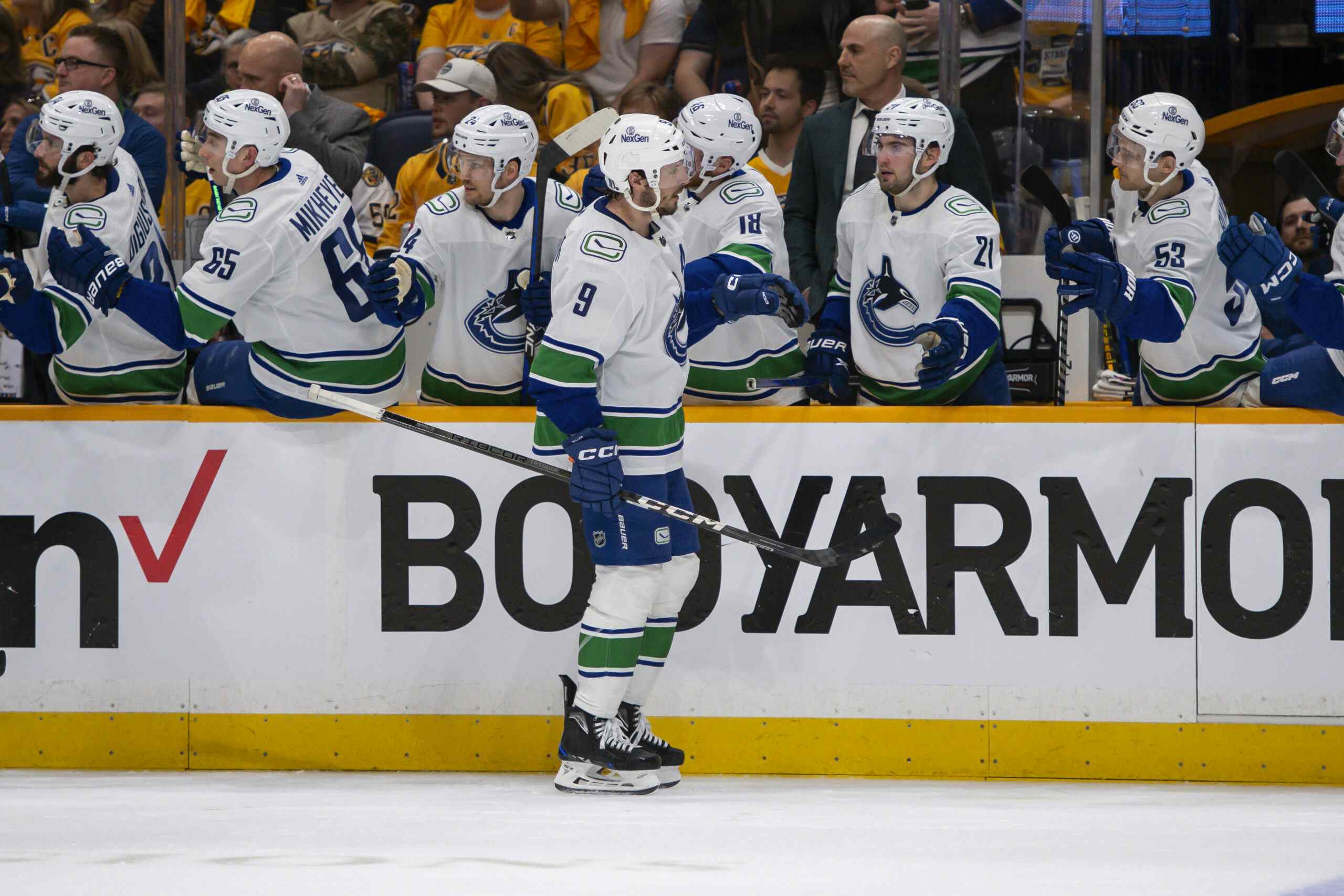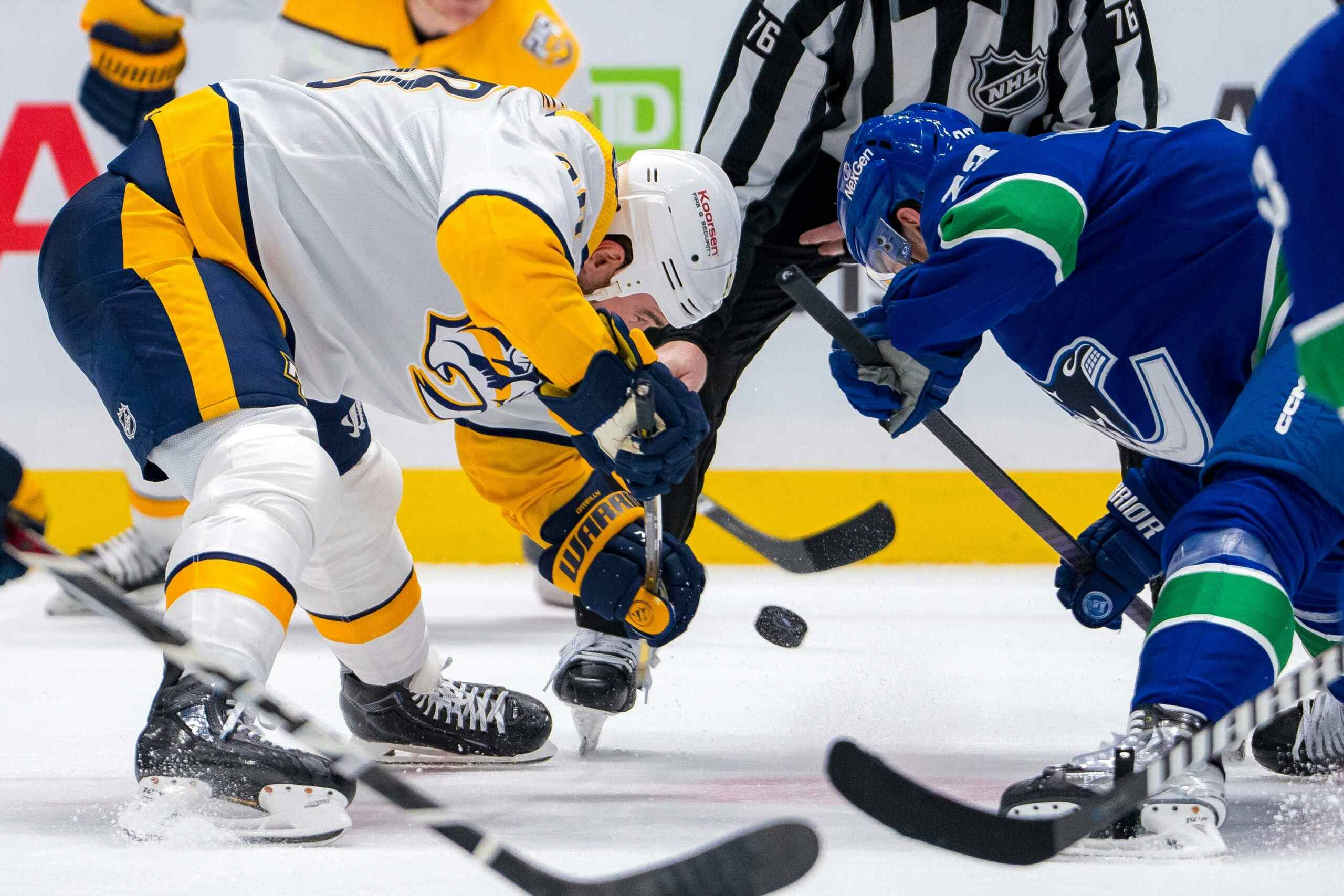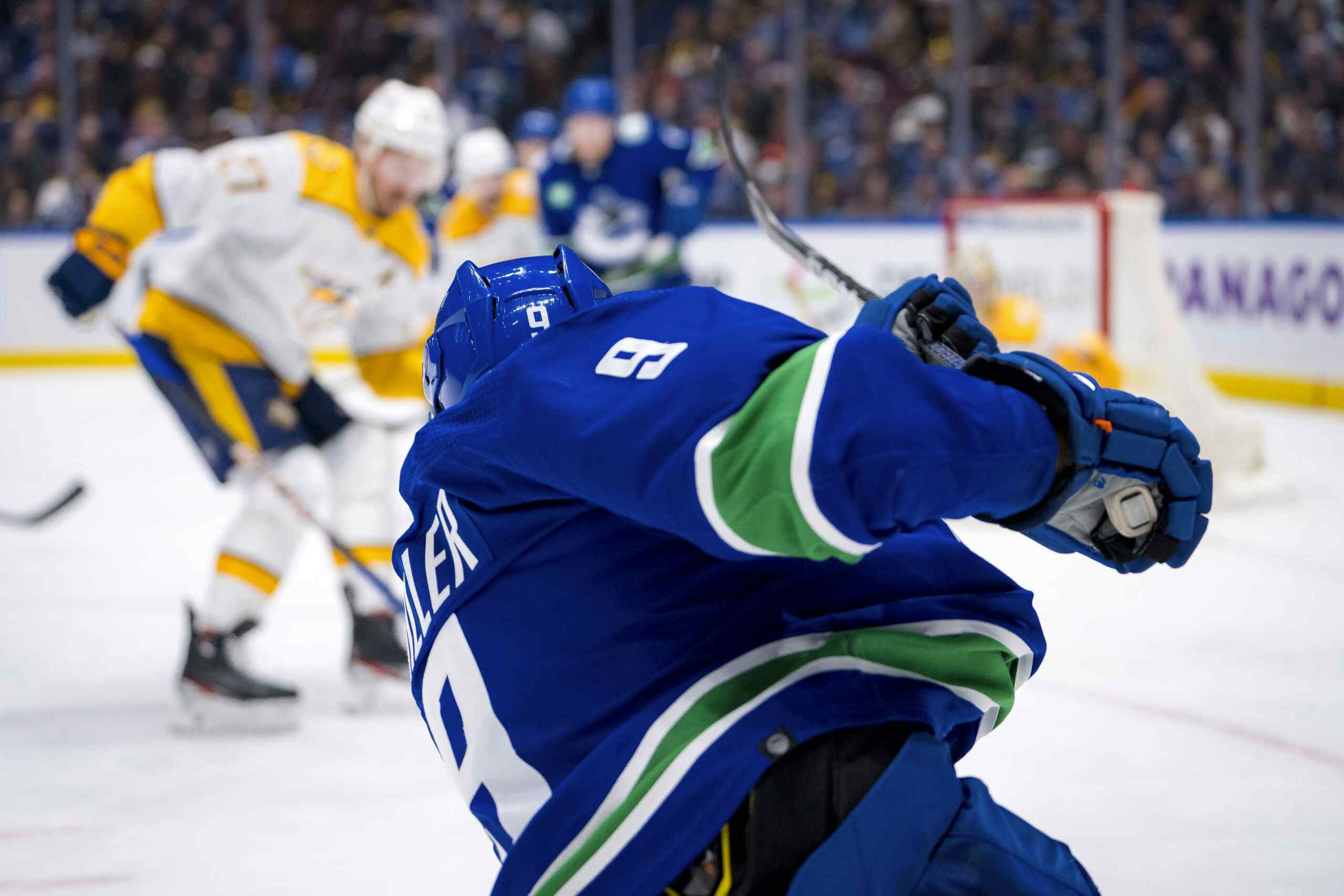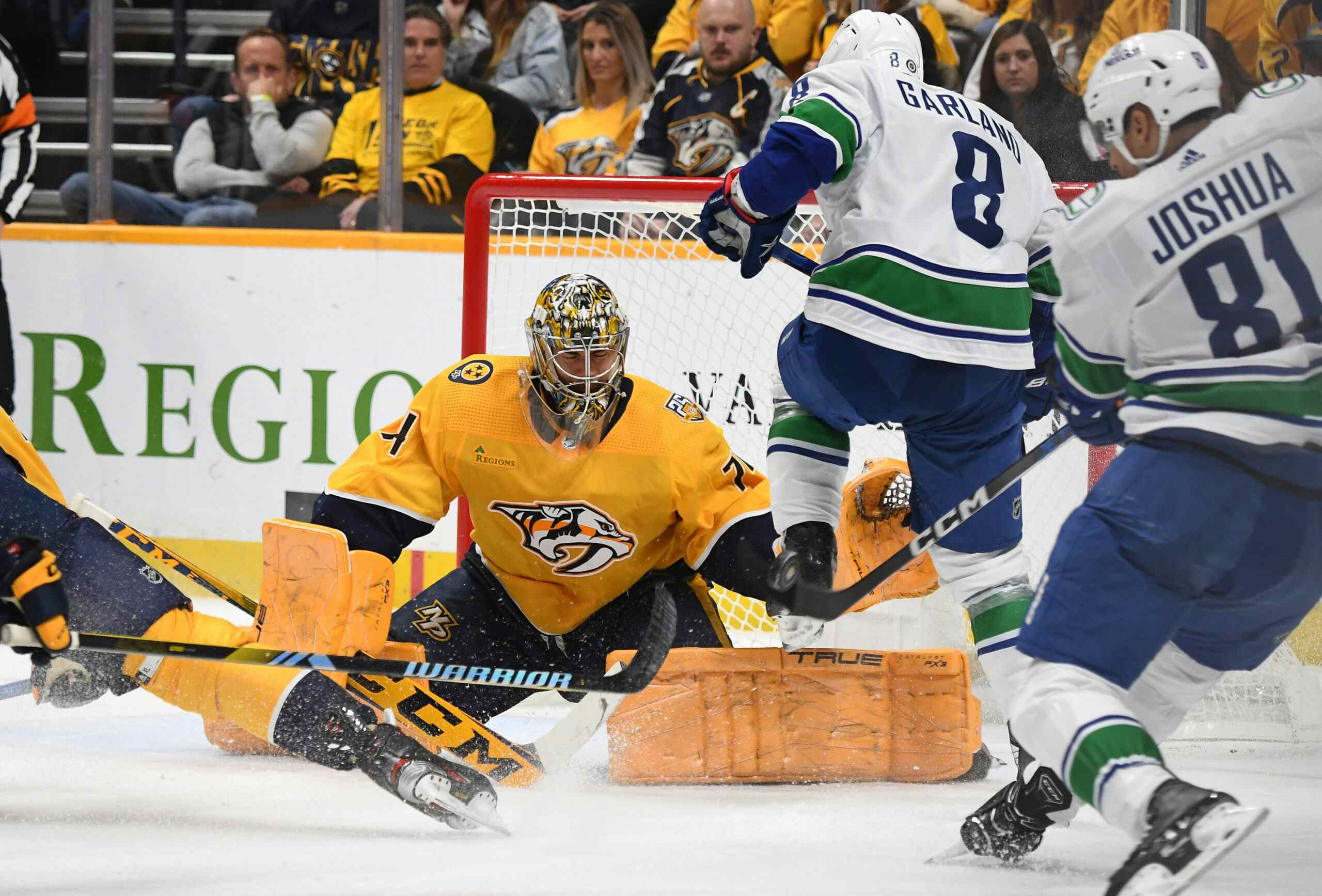Dale Weise, Advanced Stats and the Arbitration Process
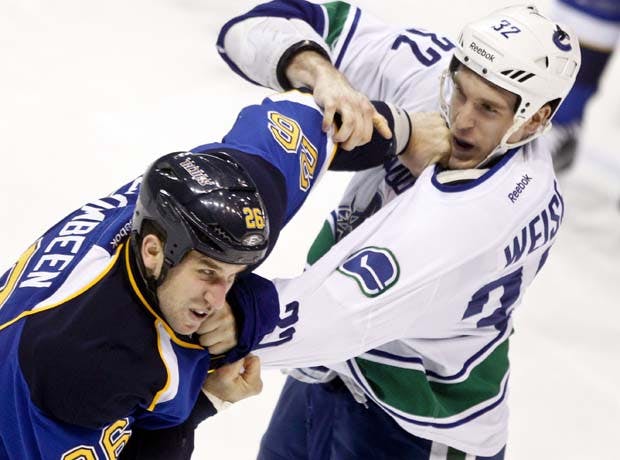
Today, Dale Weise’s agent filed for player elected arbitration. In lieu of an agreement with the Canucks before the hearing (which will take place at some point in mid-to-late July) an arbitrator will hear arguments from Dale Weise’s side, and from the Canucks and will independently determine Weise’s salary for the 2013/14 season. Weise’s decision to file for arbitration didn’t surprise the Canucks, per Ben Kuzma:
With grinder salaries rising, Canucks assistant GM Gilman not shocked Weise has filed for arbitration. Part of process, deal still possible.— Ben Kuzma (@benkuzma) July 5, 2012
Generally speaking, the Canucks have done well to avoid arbitration hearings during Mike Gillis’ tenure. Mike Gillis has extended Mason Raymond and Jannik Hansen on the eve of their arbitration hearings in the recent past, and in five off-has only gone to arbitration with one player (Kyle Wellwood). I’d expect that number will increase this summer, with both Weise and Mason Raymond on the docket.
Dale Weise takes a lot of flack from Canucks fans because he’s not a prototypical enforcer type. He’s not a glass shattering hitter, and though he is a willing combatant, his fighting skills are limited (he put up an 0-8 record according to hockeyfights.com voters). Of course, this line of criticism fails to take into account the fact that Dale Weise is a useful, albeit replacement level hockey player in a limited role, and a prototypical Alain Vigneault fourth liner. Unfortunately for Weise, it’s not just the criticism of his play from Canucks fans that misses the forest for the trees, the arbitration process does as well…
Click past the jump for more.
The Process
At an arbitration hearing, both sides build their argument in advance, and then share all the information 48 hours before the hearing. There are even iron-clad parameters governing the spacing and font that has to be used on the summaries that are exchanged prior to the hearing.
Each side gets their chance (90 minutes) to present their case, and if the side going second presents new evidence, then the side that went first gets an additional ten minutes to respond. All of the above info, and what I’m about to quote below comes from Dirk Hoag’s seminal take on the arbitration process (which you should read in full). Here’s the sort of information that both sides are permitted to use to build their cases:
As to how these cases can be built, the following are cited as appropriate pieces of evidence:
- Official statistics describing the player’s offensive and defensive performance. Yes, this even includes the RTSS stuff like hits, giveaways, and takeaways (ugh).
- Games played, and the variety of injuries/illnesses which played into that. Length of service in the NHL and with that particular team.
- "Overall contribution of the Player to the competitive success or failure of his Club in the preceding season".
- "Special qualities of leadership or public appeal"…
- The performance and salary of players who are specifically described as comparable by either party in the arbitration hearing. Only salaries from players who were also Group 2 (restricted) Free Agents at the time their contracts were signed are considered here.
So to summarize, Dale Weise’s side can only use "official statistics" to describe Dale Weise’s offensive and defensive performance. That means the Canucks can say "Dale Weise only scored four goals and eight points in 68 games this season," and Dale Weise’s agent cannot respond by pointing out that "my client only started 20% of his shifts in the offensive-zone, one of the lowest rates in the league, and still finished with positive adjusted possession numbers!" It’s stupid, but that’s the way it is: no advanced stats allowed!
The Difficult Case For Weise
Dale Weise did a lot of little things pretty well last year. He usually made the safe play, he drove the puck forward in difficult circumstances, he drew more penalties than he took, and the opposition scored at a lower rate when Weise was on the ice, than when any other Canucks regular was. Unfortunately, I took all of those stats from behindthenet.ca, and Dale Weise’s side is restricted to using only nhl.com’s stats to build their case.
On length of service, Weise managed to stay healthy but he only just completed his first season with the team and in the league. His durability is a point in his favour, but as a sophmore who has only been in the Canucks organization for one season, he won’t get much leverage on this point. On "overall contribution to the competitive success or failure of his Club," Weise will again have trouble proving his worth. He averaged 8 minutes per game in the regular season, and played just a hair over 8 minutes total in two of the team’s five playoff games. "Special qualities of leadership or public appeal." Again, Weise strikes out.
Finally, we get to comparable players. Remember, these comparable players have to have been Group 2 RFA’s when they signed their deals – so you can count out the recent deals signed by the likes of Brandon Prust, Aaron Asham or George Parros. This is where Weise and his agent may be able to find some solid footing, but it still seems like a stretch to me.
It’s difficult to find a better comparable for Dale Weise than Columbus’ Jarred Boll. Boll had more NHL experience when he recently re-signed a two year deal with Columbus (worth an average of 1.05 million per season), but in terms of his minutes he’s down right Weise-ian, and in terms of his production – he’s nowhere near as good as the Canucks forward. Weise has fewer giveaways, hits his opponents more often and score wells – so that’s a comparable deal I’d expect Weise’s camp to push.
Meanwhile the Canucks will likely point to Maxim Lapierre (who signed a two-year deal with an average hit of a million dollars) as evidence of a guy who is on their current club, signed as a group 2 RFA, and did so while he had a significantly better resume than Weise does.
Conclusion
Regardless of the outcome, I’d expect Weise won’t manage to get his average cap-hit up to a million dollars in an arbitration hearing. And if I’m off on this, and Weise is awarded a modestly significant raise, I’d wager the Canucks walk away from the award. Simply put, the Canucks tend not to spend their cap-space on fourth line grinders (quite rightly). Weise is unlikely to be awarded above the "threshold" (1.042 in 2006, so in the ball park of 1.5 million) that would allow the Canucks to walk away from the contract. But even though Weise’s eligibility to file for arbitration gives him more leverage than Victor Oreskovich did last summer, I’d nonetheless expect this situation will have a similar outcome.
Weise is a replacement level grinder, sure, but when you look at his durability and what he’s able to do defensively in somewhat difficult circumstances – he’s a useful replacement level grinder with some top-9 upside. Frankly, I feel bad for the guy, since the numbers and metrics that prove his relative worth simply aren’t admissible in an arbitration hearing.
Recent articles from Thomas Drance


